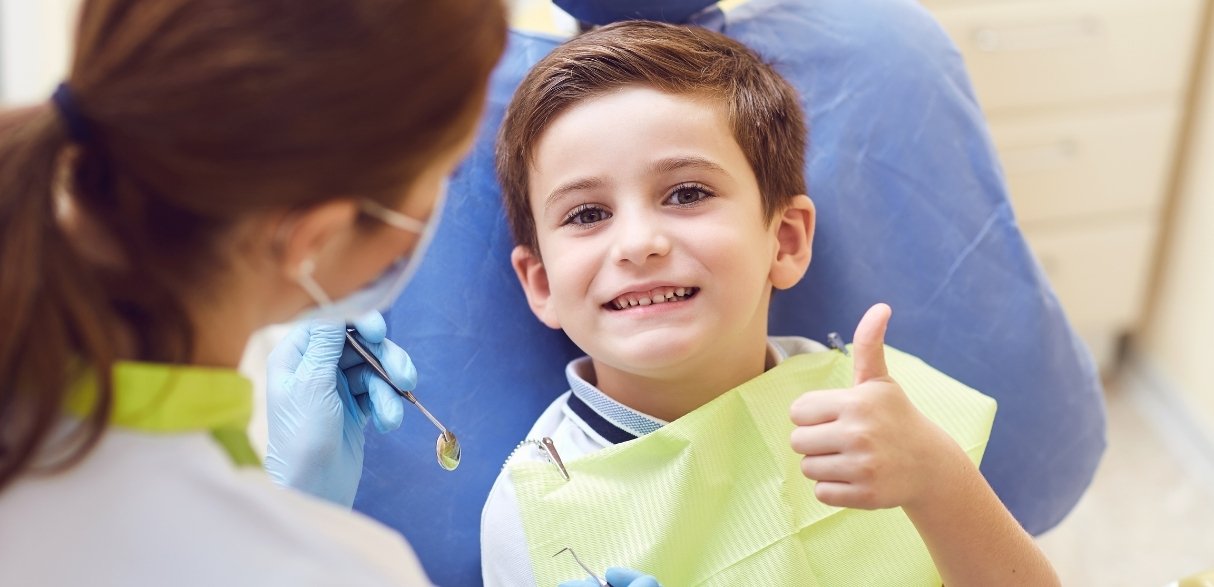
Pediatric dentistry plays a vital role in your child’s oral health. From infancy to adolescence, children’s dental needs are unique. Proper jaw development and alignment are essential for overall health, speech, and self-esteem. A pediatric dentist is trained to monitor and guide jaw development early on.
By providing professional care, pediatric dentists help ensure children’s jaws grow correctly, preventing alignment issues that could lead to more severe problems.
Understanding Jaw Development in Children
The jaw undergoes significant growth and change from infancy to adolescence. The primary teeth emerge in the first few years, and the jaw adjusts to accommodate them. As children grow, the permanent teeth begin to come in, requiring further jaw adjustments. When children reach adolescence, the jaw should fully develop to support the adult teeth.
Several factors affect jaw development, including genetics, environment, and habits. Genetic factors play a major role in determining the size and shape of a child’s jaw. Environmental influences, such as thumb-sucking, prolonged bottle-feeding, or mouth breathing, can negatively impact proper jaw growth. Additionally, habits like poor posture or unhealthy chewing can cause jaw misalignment.
A pediatric dentist monitors these factors during regular checkups, catching any issues early. Early intervention can significantly affect how the jaw develops and prevent long-term dental problems.
The Role of a Pediatric Dentist in Jaw Health
A pediatric dentist Chatsworth is highly trained to manage children’s unique dental needs. They specialize in ensuring proper oral health during childhood, a crucial time for jaw development. Pediatric dentists provide regular exams to monitor jaw growth and alignment. During these checkups, they examine how the jaw develops, look for signs of potential problems, and ensure that the teeth are growing correctly.
These dentists are also proficient in identifying early symptoms of misaligned jaws, such as difficulty chewing or speaking, and take immediate steps to address them. They use advanced techniques and tools, including X-rays and physical exams, to monitor jaw development and spot any issues that might arise.
Pediatric dentists are particularly adept at creating a comfortable environment for children, making dental visits less stressful. Their training allows them to recognize the signs of jaw development issues early and provide specialized care tailored to a child’s needs.
Common Jaw Development Issues in Children
Jaw development issues can range from mild to severe, affecting a child’s ability to chew, speak, or smile confidently. The most common issues include underbites, overbites, crossbites, and open bites.
An underbite occurs when the lower jaw extends beyond the upper jaw, while an overbite happens when the upper jaw overlaps the lower jaw. A crossbite refers to misalignment where the teeth don’t meet correctly and an open bite results in a gap between the upper and lower teeth.
Several factors can cause these problems. Genetics plays a major role, but environmental factors like thumb-sucking, mouth breathing, and prolonged use of pacifiers can also lead to jaw misalignment. Poor oral habits, such as chewing on one side of the mouth, may further exacerbate the issue.
The earlier these problems are detected, the easier they are to treat. Regular visits to a pediatric dentist help identify jaw issues early, preventing them from worsening as the child grows. Early intervention ensures that children can avoid more complex treatments later in life.
How Do Pediatric Dentists in Chatsworth Help with Jaw Alignment?
A pediatric dentist uses a combination of diagnostic tools and treatment options to help children achieve proper jaw alignment. X-rays are a common tool to assess the position of the teeth and jaw, providing a clear picture of any misalignment or developmental issues. Physical exams also allow the dentist to check for any irregularities in jaw growth and tooth eruption.
When alignment issues are detected, pediatric dentists often recommend early orthodontic treatment. Early braces or space maintainers can help guide the jaw and teeth into proper alignment, preventing the need for more invasive treatments in the future. These devices gently encourage the jaw to grow healthier and more balanced.
The benefit of early intervention is clear. Pediatric dentists can ensure that the jaw develops correctly by addressing jaw alignment issues while children are still growing. Treatment during this critical stage can reduce the need for extensive procedures later on and can help avoid complications related to speech, chewing, and overall dental health.
Chatsworth pediatric dentists are dedicated to providing personalized care that supports healthy jaw development, ensuring children’s smiles stay bright and healthy for years.
Preventive Measures and Tips for Parents
Parents play an essential role in supporting their child’s jaw development. Encouraging oral habits is one of the most effective ways to promote healthy jaw growth. Children should avoid thumb-sucking and mouth-breathing, as these habits can lead to misaligned jaws. Ensuring your child has a balanced diet with plenty of calcium and vitamins is also essential for healthy teeth and bone development.
Another tip is to encourage proper chewing and biting habits. If a child tends to chew on one side of their mouth or frequently uses their teeth as tools, it can cause jaw imbalances over time. Regular dental checkups with a pediatric dentist will help ensure your child’s jaw is developing correctly and that no habits negatively impact oral health.
By supporting your child’s oral health and staying proactive about their dental care, you can help ensure proper jaw alignment and avoid potential problems in the future.
A pediatric dentist guides your child’s jaw development and alignment. Regular visits to a pediatric dentist help monitor growth and identify any issues early on. By providing preventive care and early intervention, these specialists ensure that your child’s jaw develops correctly, promoting overall dental health and well-being.
Schedule an appointment with our pediatric dentists today and take the first step toward a healthier smile for your child!


